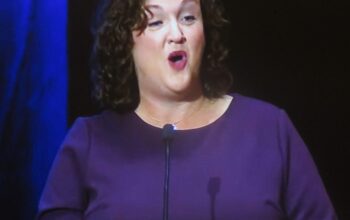Close to 700,000 people who deserve unemployment checks are having problems getting the, Most are having problems getting the checks in a timely fashion—but if you are on death row in San Quentin, your check arrives swiftly!
“This week, EDD suspended payments to many Californians in its latest effort to deal with massive fraud that erupted when Congress pumped many billions of dollars into the unemployment insurance system for workers who lost jobs due to COVID-19.
“As part of ongoing efforts to fight fraud, EDD has suspended payment on claims considered high risk and is informing those affected that their identity will need to be verified starting this week before payments can resume,” the agency tweeted on Sunday.
Only a second grader would come up with the concept that if you suspended payments for everyone, you stop fraud. Newsom, who thinks a virus is more deadly in the middle of the night has come up with this new way to torture Californians in need. He needs to go.
Employment Development Department another name for titanic disaster

by Dan Walters, CalMatters, 1/6/21
n summary
The California Employment Development Department has been a titanic disaster of late and Gov. Gavin Newsom bears the onus of its failures.
“Rearranging deck chairs on the Titanic” is an overworked cliché, but it certainly applies to California’s Employment Development Department.
The name itself is a farce. There’s no evidence that EDD ever developed any jobs, other than employing thousands of bureaucrats to pay out unemployment insurance benefits — and that’s been a titanic disaster.
This week, EDD suspended payments to many Californians in its latest effort to deal with massive fraud that erupted when Congress pumped many billions of dollars into the unemployment insurance system for workers who lost jobs due to COVID-19.
“As part of ongoing efforts to fight fraud, EDD has suspended payment on claims considered high risk and is informing those affected that their identity will need to be verified starting this week before payments can resume,” the agency tweeted on Sunday.
The suspensions were ordered a few days after EDD’s much-criticized director, Sharon Hilliard, abruptly retired — whether voluntarily or otherwise — and Gov. Gavin Newsom replaced her with veteran apparatchik Rita Saenz.
The fraud scandal is doubly embarrassing for Newsom because the agency was already on the hot seat for failing to deliver timely payments to hundreds of thousands of legitimate claimants and still has a massive backlog of unprocessed claims.
The Los Angeles Times, in a lengthy examination of the fraud scandal, pointed out that EDD had failed to adopt “precautions implemented in other states, including using sophisticated software to identify suspect applications, keeping Social Security numbers out of official mail and cross-checking benefit claims against personal data on state prison inmates.”
The agency had a contract with a firm, Pondera Solutions, that had successfully used publicly available data to flag potentially fraudulent claims, but cancelled it when federal funds for the fraud-prevention program expired.
So EDD fell hugely behind on legitimate unemployment claims and approved billions of dollars in fraudulent claims. What else could possibly go wrong?
Two years ago, state Auditor Elaine Howle advised the Legislature that EDD was exposing people to identity theft by placing Social Security numbers on mail. The volume of such mail has exploded during the pandemic but EDD ignored the warning and “has continued to place Californians at risk of identity theft,” Howle said in a recent letter to Newsom.
Finally, the surge of unemployment claims has created a gigantic debt.
California borrowed more than $10 billion from the federal government to pay benefits during the recession that began in 2007. The feds hiked taxes on California employers to pay off the debt and by the end of 2019, a year of low unemployment, the unemployment insurance fund had a $3.3 billion balance.
However, during 2020, the state paid out more than $100 billion in benefits, about a quarter in employer-financed regular benefits and the rest in emergency federal aid. The state unemployment fund was more than $20 billion in the red at the end of 2020 and, EDD projects, will end 2021 with a negative balance of nearly $50 billion.
When state unemployment funds dry up, benefits continue with federal loans that states must repay. California’s previous $10 billion debt took years to repay, and it now could face a $50 billion debt. The state may hope for loan forgiveness, but if it’s not forthcoming, employers will be saddled with new taxes that would make recovery from recession even more difficult.
If there’s a political price to be paid for EDD’s seemingly endless crises, it will fall on Newsom, especially if a pending recall drive places his career on the ballot later this year.



